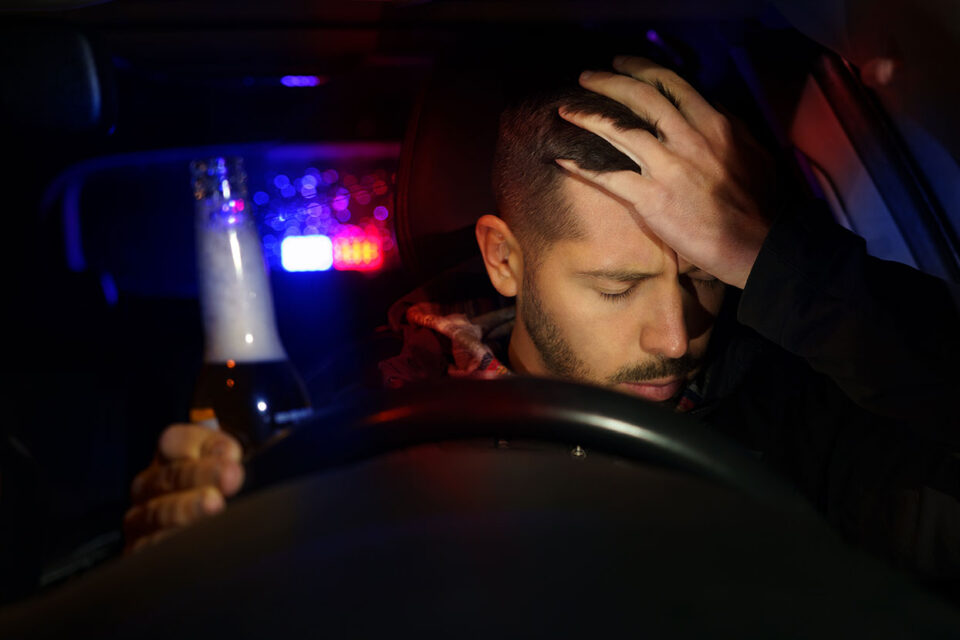Just by chance, you’re driving home late one night and the flashing lights in your rearview mirror indicate you’re being pulled over. As the officer approaches your window, you sense a shift in the usual traffic stop routine – you’re asked to perform a field sobriety test.
Now, you’re suddenly thrust into a nerve-wracking situation, where your decisions could have serious implications. This is a scenario no one desires, but it’s critical you’re prepared and aware of your rights and the details surrounding these tests.
In this discussion, we’re going to dissect everything you need to know about field sobriety tests, from the science behind them to their reliability, and crucially, your rights during this process.
So, are you ready to empower yourself with this indispensable knowledge? Let’s find out.
Understanding Field Sobriety Tests
In navigating the complex landscape of DUI defense, a crucial step you must understand is the concept of field sobriety tests. These tests are procedures employed by law enforcement officers to determine if a driver is impaired. Knowing the field sobriety test procedures can equip you with vital information when you’re on the spot.
The implications of failing a sobriety test can be severe, possibly leading to a DUI charge. However, it’s essential to remember that the validity of field sobriety test results can be questioned. Factors such as officer bias, environmental conditions, or even your physical condition could affect the results.
If you’re uncomfortable with the idea of field sobriety tests, know that there are alternatives available. You might choose to undergo a breathalyzer or blood test, which could provide more reliable results.
The most empowering fact you should understand is that challenging the results of a sobriety test isn’t only possible but often successful. A skilled attorney can scrutinize the test’s validity, possibly leading to the dismissal of your charges. So, arm yourself with knowledge and remember, you have rights.
Legal Basis of Sobriety Examinations
To fully grasp your rights and obligations during a DUI stop, it’s crucial to understand the legal basis of sobriety examinations. These tests are designed to meet constitutional requirements, providing police with a tool to establish probable cause for a DUI arrest.
The legalities surrounding sobriety tests allow for police discretion, meaning officers can decide whether to administer these tests based on their observations. If you display signs of impairment like slurred speech, erratic driving, or the smell of alcohol, police can use these as grounds to conduct a sobriety test.
But these aren’t arbitrary tests; they’re standardized examinations developed by the National Highway Traffic Safety Administration. These include the Horizontal Gaze Nystagmus, Walk-and-Turn, and One-Leg Stand tests.
Importantly, for the results of a sobriety test to be used in court, they must meet admissibility requirements. This means the officer must properly administer the tests and follow a strict protocol. If they don’t, you may be able to challenge the results.
Understanding this legal framework can empower you during a DUI stop. It’s about knowing your rights, understanding what’s permissible, and ensuring fair treatment.
Common Types of Sobriety Tests
Building on your understanding of the legal basis for sobriety tests, let’s explore the most commonly administered examinations during a DUI stop.
First, we’ve the Horizontal Gaze Nystagmus test, where an officer observes your eye movement as you follow a pen or light. A lack of smooth pursuit may indicate impairment.
Next, the Walk and Turn test requires you to take nine steps, heel-to-toe, along a straight line, then turn on one foot and return in the same manner. Failing to maintain balance, or starting too soon, can count against you.
The One Leg Stand test is likewise a balance challenge. You’ll have to stand on one foot, while counting aloud for 30 seconds. Swaying, hopping, or putting your foot down may suggest you’re under influence.
Alphabet Recitation, though less common, might be used to assess your cognitive function. You may be asked to recite a portion of the alphabet in order, without singing.
Lastly, the Finger to Nose test checks your physical coordination and balance. With your feet together and eyes closed, you’ll extend your hand and touch your nose.
Inaccuracy Factors in Sobriety Tests
While field sobriety tests can provide valuable insights for law enforcement, it’s crucial to be aware that numerous factors can diminish their accuracy.
One leading cause of inaccuracies is the occurrence of false positives. This means you could fail a test even if you’re not impaired due to conditions like fatigue, stress, or certain medical conditions.
Physical impairments that affect balance or coordination can also lead to false positives. For instance, a person with an inner ear disorder might fail the one-leg stand test, despite being sober. Likewise, neurological conditions, such as Parkinson’s disease, could affect performance on the finger-to-nose test.
The accuracy of these tests also heavily relies on standardized procedures. Any deviation from these protocols by law enforcement can compromise the results. Officer bias is another concern. For instance, an officer might subconsciously interpret your performance based on their initial impressions of you.
Considering these factors, it’s essential to seek alternative testing methods, like chemical testing, if you’re subjected to a sobriety test. These methods tend to be more accurate and less prone to interpretation.
Rights During a Sobriety Test
Given the potential inaccuracies and bias inherent in field sobriety tests, it’s crucial that you’re fully aware of your rights during such a procedure. One potential rights violation is if law enforcement doesn’t adhere to standardized procedures, possibly skewing results. You have the right to ensure the officer is properly trained and the test is conducted correctly.
You also hold the right to question the breathalyzer accuracy. These devices aren’t infallible; they can produce false positives due to factors like diet or medical conditions. If you have doubts about the breathalyzer’s reliability, you can request an alternative test, such as a blood test, which is more accurate.
Moreover, remember that you’re under no obligation to perform field sobriety tests. You can refuse without facing legal consequences. However, refusing a breathalyzer test could lead to immediate license suspension in some states due to implied consent laws.
Lastly, if you feel your rights were violated during the sobriety test, consult an attorney immediately. Never hesitate to advocate for yourself and remember, understanding your rights can help protect you from potential inaccuracies and bias in these tests.
Frequently Asked Questions
What Are the Penalties for Refusing a Field Sobriety Test in Northern California?
If you refuse a field sobriety test in Northern California, you’re facing immediate license suspension, fines, and possible jail time. It’s crucial you understand your rights and secure a defensive strategy to challenge the refusal consequences.
How Can a Criminal Defense Attorney Like Douglas L. Gardner Help if I’m Charged With DUI After Failing a Field Sobriety Test?
Douglas L. Gardner’s attorney expertise offers robust defense strategies if you’re charged with a DUI. His track record, legal representation benefits, and thorough case evaluation process can greatly improve your chances of a favorable outcome.
Does the Location of the Test (Like Shasta County or Siskiyou County) Impact the Administration or Results of the Field Sobriety Test?
Test variations, enforcement differences, and geographic factors can influence your sobriety test’s administration. So, yes, the location like Shasta or Siskiyou County could impact the results of your field sobriety test.
Can Past Medical Conditions or Injuries Affect the Results of a Field Sobriety Test?
Yes, your past medical conditions or injuries can indeed affect sobriety test results. Issues like vision problems, neurological disorders, or effects from prescription medications might impact your balance, coordination, or other test aspects.
How Is a Field Sobriety Test Used in Court to Prove a DUI Charge?
A field sobriety test’s results could sway a DUI case. The accuracy of the test, officer’s discretion, and breathalyzer relevance all play a role. If you refuse, it could impact your DUI conviction consequences.
Conclusion
So, now you’re equipped with the knowledge of field sobriety tests. Remember, understanding your rights, the tests’ limitations, and legal foundations can greatly influence the outcome if you’re ever in this situation.
Stay calm, make informed decisions, and consult a professional if charged with a DUI. Knowledge is power, and in this case, it could be the difference between a conviction and acquittal.
Stay informed, stay safe.



